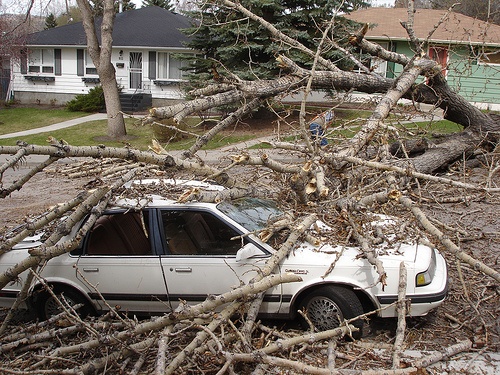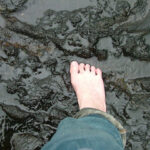Every man is guilty of all the good he did not do. – Voltaire

If you heard a crash and saw this across the street, would you go over and make sure no one was in it, or help them out if they were? Or would you choose to not act?
What does that mean?
This quote was shortened far before the advent of Twitter. It is from one of his books, and the complete quote is: “A minister of state is excusable for the harm he does when the helm of government has forced his hand in a storm; but in the calm he is guilty of all the good he does not do.”
This quote we are using is a generalization of the full quote, which was made regarding government ministers, who can be forgiven when they do harm at the insistence of the crown or events beyond their control, but when all is calm, they are responsible for the good they don’t do.
I like this quote because we are all familiar with the evil done by lies of omission, when a person fails to tell the whole truth, or leaves out a critical detail. This lack of information can cause tragic consequences when a decision is made based on this lack of information.
This quote is about the evil done by lack of action, rather than the lack of information. It is about the things you could have done, or should have done, but did not do. While you may not have directly caused something to happen, your inaction allowed the situation to become worse.
Why is doing good deeds important?
What if you could, with a small action and with little risk or effort, save someone’s life? Would not acting be something you should feel guilty about, or be considered guilty for not having done? While you did not kill them, you allowed them, through your inaction, to die.
To me, that is what this quote is about. Doing what you can to help or protect others. Whether the harm be physical, emotional, mental, spiritual, or financial, I believe we have at least the hint of an obligation to do some good, rather than ignore the situation.
While it’s easy to spot someone in physical need, and fairly easy to spot the most needy of those in emotional need, the other needs still exist. You might not always know in advance, but you should be ready to help once you notice, or can confirm a need. Unless you are prepared to live with the guilt for what you failed to do.
Where can I apply this in my life?
In the USA, we are still not finished restoring power or cleaning up from a recent storm on the East Coast. There is a government entity, FEMA, which is supposed to help out with disaster recovery. However, it isn’t exactly noted for always doing a great job.
From Hurricane Katrina to the April 2011 tornadoes (yes, plural) in Cordova, Alabama, FEMA has had problems. How many of these disasters could be worked through more rapidly if the people involved were focused on doing good for the people who they exist to help?
To me, this is the best example for the quote, as the full quote is about the lack of action on the part of government officials, and how that lack of action should be held against them. I believe that they should be held accountable, both legally and morally.
Consider the start of Spider Man. The comic, the TV shows, the movie, all start with his reason for dedicating his life to fighting crime. He had the chance to stop an armed robber, and chose to not do good. Shortly after that, his uncle, his father figure, was killed by that same armed robber.
In this case, the lack of action, the failure to do what was good, cost both Peter, and his family, dearly. While most of the time when we fail to do the right thing, to fail to do good when we could, the consequences are neither as immediate nor as dire.
But that does not excuse us from our inaction. Each of us has the opportunity to help out from time to time. It may not seem like much to us, but the result for the person or people we help may be quite significant. Even something as simple as a smile or hello could really make a difference for someone having a really rough day.
A person I knew years ago helped a struggling kid out of a pool. The kid coughed a few times, shook himself off, and went back to playing, never knowing how close to death he had been. As someone tall enough to stand in the water, lifting the kid to safety was a trivial task for that person.
While it’s easy to see when there is obviously a life on the line, there are plenty of other times and places when a small action on your part can make a difference in the life of another. But it might be easier to see if we turn it around.
Take a moment and think back through your life. How many times have you been helped by someone else, either a stranger, or someone you know. Times when you were in need of help, and someone was there to provide it? How different would your life be if they had decided to not act, to not do good?
Now consider the times when you were truly in need, and no one was there for you. No helping hand, no one to do a good deed for you. Or worse yet, someone was there, and could have helped, but failed to do so. How did those times feel? How much of a difference would it have made if they had helped?
As to what you can do to not be the person who fails to do good, that’s easy enough in theory. Just do good when ever you can. That doesn’t mean dedicating your life to doing nothing else, but to be aware of your surroundings, and prepared to lend a hand when you can.
From: Twitter, @TheIlluminati
confirmed at : http://www.brainyquote.com/quotes/quotes/v/voltaire132939.html and http://en.wikiquote.org/wiki/Voltaire, about 1/3 of the way down, search to find it…
Photo by Kevin Saff
Happy Birthday to Voltaire, born François-Marie Arouet on 21 November 1694.






